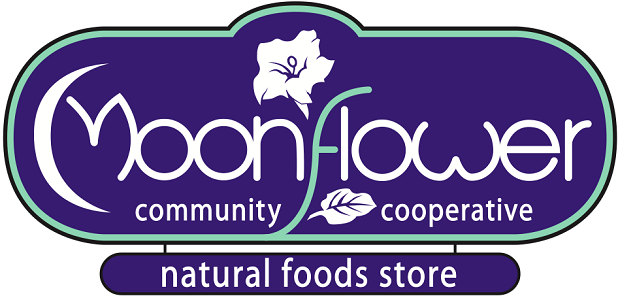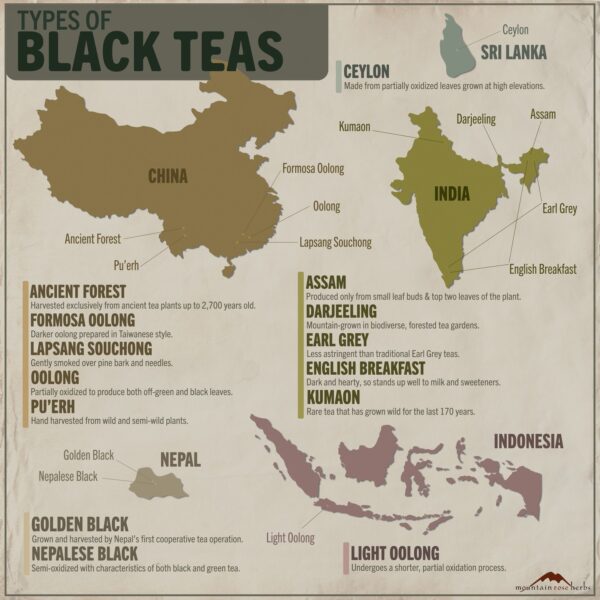Long, chilly nights and cold mornings call for lots of cups of hot tea!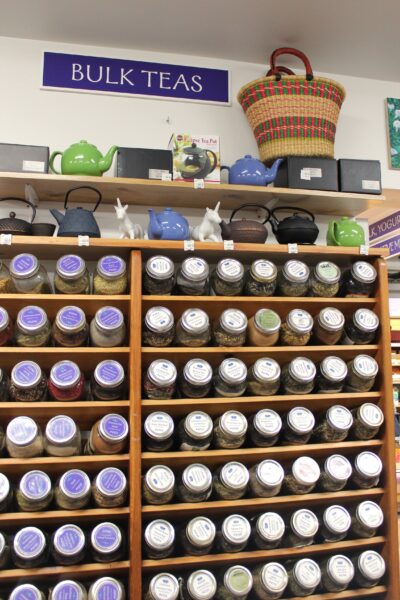 Check out our incredible bulk tea section, which has over 60 loose leaf teas and herbal blends (right next to our bulk herbs and spices section, in case you would rather make your own). We even make our own Moonflower chai blend in house, with ginger, cinnamon chips, cardamom pods, black peppercorns, licorice root, whole cloves, and vanilla beans!
Check out our incredible bulk tea section, which has over 60 loose leaf teas and herbal blends (right next to our bulk herbs and spices section, in case you would rather make your own). We even make our own Moonflower chai blend in house, with ginger, cinnamon chips, cardamom pods, black peppercorns, licorice root, whole cloves, and vanilla beans!
Did you know that all teas (white, green, oolong, black, and pu-erh) are actually made from the leaves of the same species, Camellia sinensis? The main differences in tea types (other than the varietal of plant and growing conditions) occur during the processing of the leaves, beginning with oxidation of the leaves when they are plucked from the plant. A black tea is fully oxidized, causing it to turn black, while a white tea is barely oxidized, thus retaining its soft, silvery down.
Types of Teas
WHITE: Least processed; least amount of caffeine (~10-15 mg per 8oz cup [for reference, an 8oz cup of coffee contains about 95mg of caffeine]); delicate flavor and aroma.
GREEN: Leaves are heated immediately after plucking, preventing them from oxidizing, so they retain most of their natural green color, tannins, vitamin C, chlorophyll, and minerals. Tastes more astringent and subtler than oolong or black tea. Very low caffeine (Chinese: ~30-35mg per 8oz cup; Japanese: 25-30mg per 8oz cup) that produces a nearly steady, mild high with no big peaks or plunges.
OOLONG: Semi-oxidized (between green and black teas); body and complexity of a black tea, with the brightness and freshness of a green tea, with a caffeine content in between (30-50mg per 8oz cup).
BLACK: Fully oxidized; brew a reddish brown to dark brown liquid; most popular type of tea in the West; 40-60mg of caffeine per 8oz cup.
PU’ERH: Aged and fermented tea specifically from the Yunnan province in China; very smooth in taste; black pu’erh teas contain ~60-70mg of caffeine per 8oz cup, and green pu’erh ~30-40mg of caffeine.
HERBAL: Infusions of herbs that are not Camellia sinensis; caffeine-free; many host a variety of health benefits.
ROOIBOS: Caffeine-free herbal tea indigenous to South Africa; naturally sweet flavor and free of bitter tannins; contains iron, potassium, copper, zinc, calcium, fluoride, manganese, magnesium, and antioxidants.
CHAI: Chai is the Hindi term for “tea”; the varietal that produces bold black tea leaves is indigenous to India, but tea was not a big part of the Indian diet until the British began producing it there in the mid-1800s. The people of India put their own culture’s twist on the drink, simmering black tea with milk, sugar, and spices such as cardamom, ginger, clove, and cinnamon. This blend of spices that they added to black tea is called masala, meaning “spiced.”
YERBA MATE: Yerba maté is the dried leaves and stems of a South American rainforest holly and is the national beverage of Paraguay. The term maté is a Guarani Indian word for gourd, referring to the hollowed out gourds once used to hold the tea. Yerba maté has over 196 active compounds (Camellia sinesis has about 144).
Check out this infographic and more info about black teas from Mountain Rose Herbs, one of our suppliers of our bulk teas:
How does your tea steep?
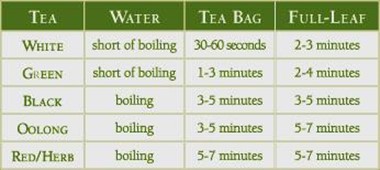
There are many different ways to steep a loose leaf tea. Green, black, red, and white teas all differ in their best extraction methods. Herbal teas will extract better in different ways depending on what is in them. Check out our various teapots, infusers, and utensils for steeping options.
Here are some general guidelines for making great tea:
Green Tea
- Allow boiled water to sit for one or two minutes or stop water short of boiling (water should not be boiling hot).
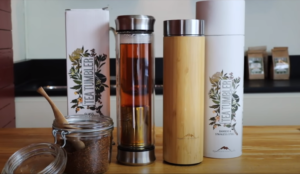
- One small spoon of loose tea leaf is enough for a cup for one person.
- Pour water into teapot through strainer or add tea ball to your cup.
- Cover the pot with a lid or cover your cup with a saucer.
- Steep for 2-5 minutes, depending on your taste preference.
- Remove tea ball or pour tea from pot to stop steeping.
Black Tea
- Boiling water is perfect temperature for black tea leaves.
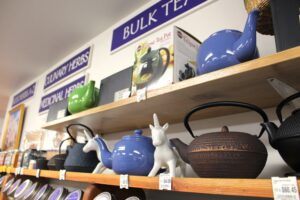 One small spoon of loose tea leaf is enough for a cup for one person.
One small spoon of loose tea leaf is enough for a cup for one person.- Pour water into teapot through strainer or add tea ball to your cup.
- Cover the pot with lid or cover your cup with a saucer.
- Steep for 3-5 minutes, depending on your taste preference.
- Remove tea ball or pour tea from pot to stop steeping.
Herbal Tea
- Leaves and Flowers: For strongest medicinal potency and flavor, leaf and flower teas should be steeped with about 1 tablespoon tea per cup of water. Cover while steeping to prevent delicious volatile oils from escaping. A French press is excellently easy for steeping, covering, and straining. Steep for 7-10 minutes.
- Roots and Barks: Roots and barks require more time and more heat to extract medicinal components of the herbs. There are a couple of ways to do this:
- Simmer 1 tablespoon tea per cup of water for at least 10 minutes.
- Using a spare coffee maker, put the herb (1 tablespoon per cup) into the pitcher and run the coffee maker. Steep with the coffee maker on for 15-30 minutes.
Full List of Bulk Teas
Check out our full list of teas and herbals blends in our bulk department below! (Click here to view this in Google Sheets.)
